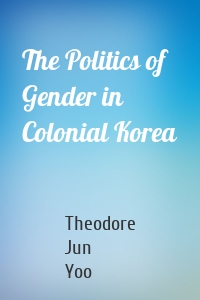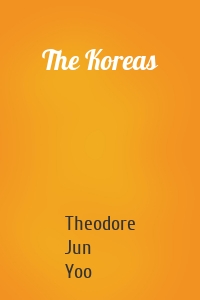Theodore Jun Yoo
3 кн.
The Politics of Gender in Colonial...
This study examines how the concept of «Korean woman» underwent a radical transformation in Korea's public discourse during the years of Japanese colonialism. Theodore Jun Yoo shows that as women moved out of traditional spheres to occupy new positions outside the home, they encountered the pervasive control of the colonial state, which sought to impose modernity on them. While some Korean women conformed to the dictates of colonial hegemony, others took deliberate pains to distinguish...
| Автор | Theodore Jun Yoo |
It's Madness
It’s Madness examines Korea’s years under Japanese colonialism, when mental health first became defined as a medical and social problem. As in most Asian countries, severe social ostracism, shame, and fear of jeopardizing marriage prospects compelled most Korean families to conceal the mentally ill behind closed doors. This book explores the impact of Chinese traditional medicine and its holistic approach to treating mental disorders, the resilience of folk illnesses as...
| Автор | Theodore Jun Yoo |
The Koreas
What history, pop culture, and diaspora can teach us about North and South Korea today.Korea is one of the last divided countries in the world. Twins born of the Cold War, one is vilified as an isolated, impoverished, time-warped state with an abysmal human rights record and a reclusive leader who perennially threatens global security with his clandestine nuclear weapons program. The other is lauded as a thriving democratic and capitalist state with the thirteenth largest economy in the world...
| Автор | Theodore Jun Yoo |




